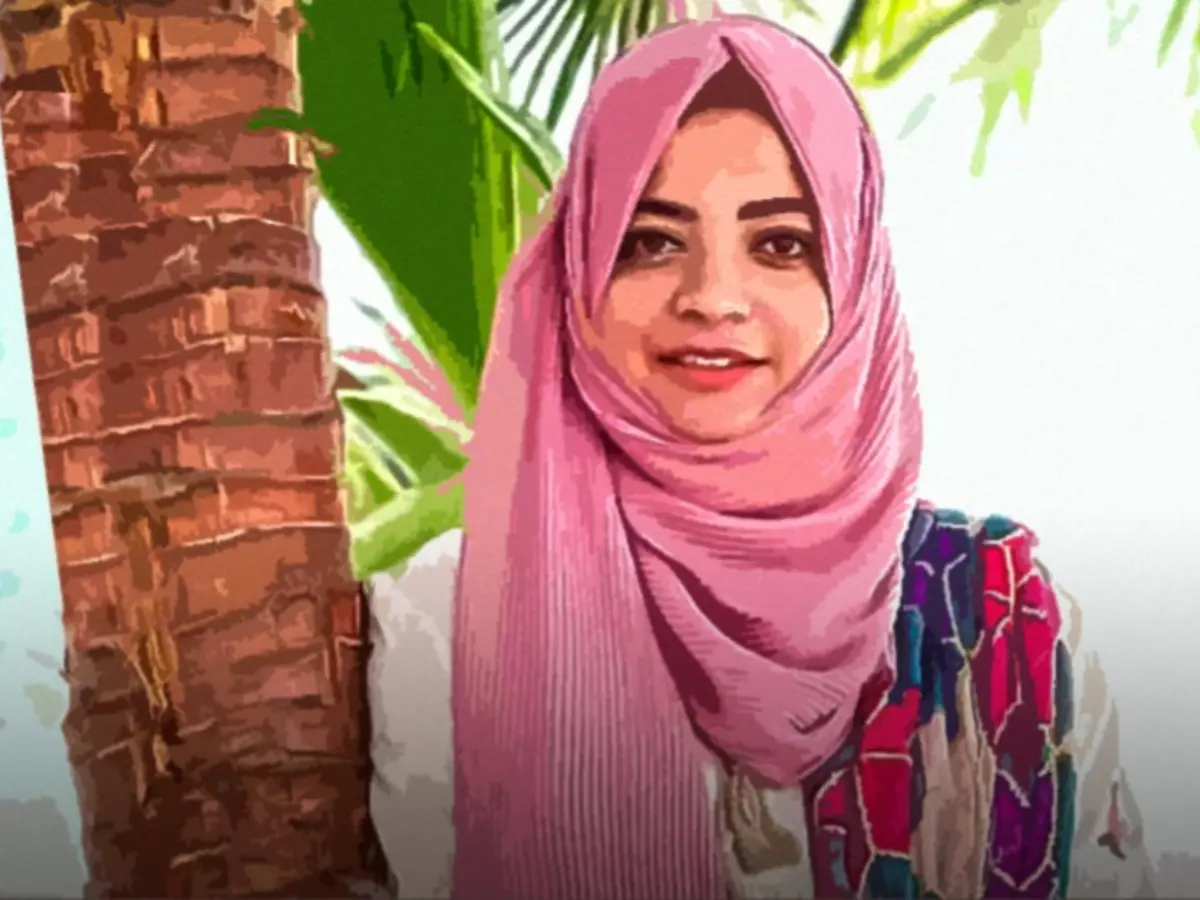¡®We Were Auctioned Off By Hindu Men¡¯, Muslim Woman Listed On ¡®Sulli Deals¡¯ App Narrates Ordeal
Muslim women in India were traumatised after finding their names and photographs up for auction on a mobile app. Photos of Muslim women especially students activists journalists artists researchers etc were uploaded by an unidentified group on an app called Sulli Deals using GitHub on July 4. The repulsive app came to light when these men started sharing their deal of the day on Twitter and it has since been removed by GitHub hosting platform.

Among the dozens of Muslim women listed for ¡°auction¡± on an app, one was Nabiya Khan, a Delhi-based poet and activist.
Nabiya told Indiatimes that the app has pictures and names of numerous women, and the motto of the app was ¡°Community-driver open source project.¡±
¡°So basically, we were auctioned off by Hindu men on that app without our knowledge,¡± she said.
Muslim women in India were traumatised after finding their names and photographs up for auction on a mobile app.
Photos of Muslim women especially students, activists, journalists, artists, researchers, etc. were uploaded by an unidentified group on an app called 'Sulli Deals' using GitHub on July 4, with the sole purpose of auctioning off Muslim women.
Once opened, the app would ask the user to click on ¡®Find your Sulli Deal of the Day¡¯.
 Twitter
Twitter
Next, it would randomly display a photo of an Indian Muslim woman most likely sourced from her social media account.
¡°Sulli¡± is a derogatory term used for Muslim women in India.
The repulsive app came to light when these men started sharing their ¡®deal of the day' on Twitter, and it has since been removed by GitHub (hosting platform, with a repository of open-source codes.)
A group of men made a database of Muslim women and named it ¡°Sulli Deals¡±. Images of Muslim women, including mine, were shared there. It is a clear case of trafficking, which is legally and morally wrong. But here, a particular section is openly supporting them. (1/3)
¡ª Saniya Sayed (@Ssaniya_) July 5, 2021
¡°You see you're being auctioned online by the people who are a part of such a huge power structure that supports them. You feel absolutely powerless, and it takes a huge mental toll on you, giving you sleepless nights. It's because you know the law will never protect you,¡± Nabiya said, adding that it¡¯s ¡°not just patriarchy, misogyny and rape culture. It is all three coupled with Islamophobia. We need to highlight a fact that on this app it is Hindu men targeting Muslim women.¡±
Hana Khan, a commercial pilot whose name was on the list, filed an FIR.
"I¡¯m resolute and firm in getting these cowards to pay for what they have done," she wrote on Twitter, adding a copy of the FIR.
Filed an FIR.
¡ª Hana Mohsin Khan (@girlpilot_) July 7, 2021
I¡¯m resolute and firm in getting these cowards to pay for what they have done.
These repeat offences will not be taken sitting down.
Do your worse. I will do mine.
I am a non-political account targeted because of my religion and gender.#sullideals pic.twitter.com/mvt20VWPqp
GitHub - the web platform that hosted the open source app - shut it down quickly following complaints. "We suspended user accounts following the investigation of reports of such activity, all of which violate our policies," the company said in a statement.
Nabiya said she was being targeted because of her religion.
"Men, in general, are threatened by women who are assertive. Being vocal is a reason enough to attack women. And, a vocal Muslim women is the highest level of threat," she told Indiatimes.
This isn¡¯t the first time Muslim women have been harrassed, or threatened with rape threats.
Earlier in May, a YouTube channel ¡®Liberal Doge Live¡¯ whose real identity is reportedly Ritesh Jha, live-streamed the photos of Muslim women on the festival of Eid with a noxious description in Hindi that read: ¡°Today, we will stalk women with our eyes filled with lust.¡±
During the live-stream, the photos of women that were sexualised and were bidded on, belonged not only to Indian Muslim women but Pakistani women as well.
There have been similar incidents of harassment when Article 370, special semi-autonomous status to the former state of Jammu & Kashmir, was revoked in August 2019.
An Amnesty International report on online harassment in India last year showed the more vocal a woman was, the more she was targeted. And just as black women were more likely to be picked on in Britain and the United States, women from religious minorities and disadvantaged castes were harassed more in India.
